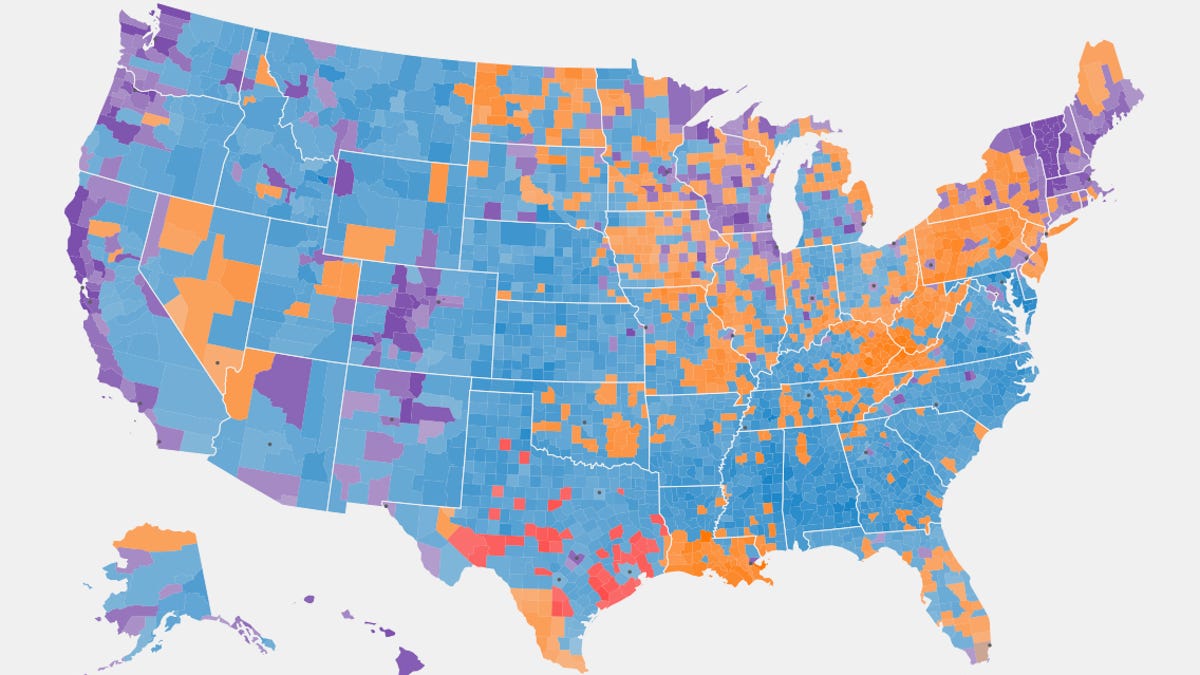If Facebook 'likes' were votes, the next US president would be...
The answer definitely comes as a bit of shocker in this new analysis of the current candidates conducted by ESPN-owned political site FiveThirtyEight.
Americans aren't known for their turnout at elections, but that's not to say they're averse to voting. Millions of them vote every single day in a sense -- by clicking the "like" button on Facebook posts, profiles and pages.
Now, the folks at FiveThirtyEight, an ESPN-owned site that focuses on polling, politics and more, have created a national map and ranking of the Facebook "likes" for each major candidate in the upcoming US presidential election.
They're calling it the "Facebook Primary," and based on this data alone, the winner is Ben Carson.
That's right, Ben Carson -- the man who has come in last in the first two Republican presidential primaries and is in an average of eighth place overall behind his competitors, according to a series of polls compiled by the Huffington Post.
It's also interesting to see that unlike many of the other candidates whose Facebook support is restricted to certain geographical regions, Carson's support on the social media network spreads out pretty evenly across the country.
To compile their information, computational journalist Matthew Conlen and visual journalist Reuben Fischer-Baum analyzed Facebook data beyond simple likes of a single page. If you look at Trump's page versus Carson's, for example, it looks like Trump is leading in popularity with 5,756,921 likes to Carson's 5,074,982 likes.
"Discrepancies can be caused by candidates having multiple Facebook pages," Conlen told CNET's Crave blog. "For example, Bernie Sanders has an official page for his position as a senator and an official page for his presidential campaign. For cases like these we aggregate the amount of total likes for the candidate across the pages and de-duplicate so that if a person likes both of Sanders' Facebook pages this will only be counted once."
Slicing the data this way also showed that Bernie Sanders comes in second place among all candidates, with almost three times the support of his rival Hillary Clinton, and that after Carson, Donald Trump trounces the rest of the Republican field.
Of course, there's also another discrepancy -- one between the Facebook data and what's actually happening in the election. That simply highlights the fact that getting lots of "likes" doesn't mean anyone wants you running the country. It's similar to how the "most popular" winner of yearbook voting in high school was rarely the same person as the "most likely to succeed." Also, because the Facebook audience and America at large are different, the results need to be taken with a proverbial grain of salt.
"Facebook users are disproportionately young (although not as young as users of other social media networks), low-income and female," Conlen says in his comments about the map. "And the sample may be even more skewed because only some people on Facebook have liked a presidential candidate's page and because those pages haven't existed for the same amount of time."
Still, it's fun to play around with the interactive map (even if it is a little bit different than our own analysis of the social-media standings of candidates). You can check and uncheck different candidates at the top of the page to see how the likes spread out across the nation. And it sounds like Conlen and Fischer-Baum will continue to update the map as the Facebook landscape changes.
"If you want your voice to be heard in 2016, you should vote," they say. "But if you want to be included in the next update of this map, just go like a candidate's page!"


